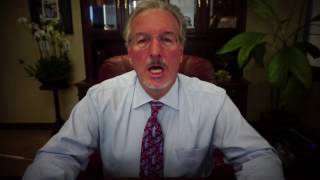 Would you like to know how the IRS finds tax evasion? In this short video San Diego tax attorney William Hartsock will explain what clues lead the IRS to investigate and identify tax evasion. For more information on tax evasion, visit: http://thetaxlawyer.com/tax-evasionThe IRS finds most of its tax evasion cases from either income tax audits or from payroll tax audits. The revenue agent that's auditing goes in and takes a look and sees if they can find significantly understated income or significantly overstated deductions, or that you're paying your employees in cash. In the event that the IRS does discover tax evasion, they will ask to interview you and they will ask you a serious of why questions, why didn't you do those type of things. Those are the questions you don't want to answer because that tends to show specific intent. The IRS revenue agent is looking for badges of fraud.The full list of badge of fraud are listed on my website, but some of the common ones are significantly understated income, overstated deductions, paying workers in cash, false entries on books, double set of books, or using a foreign bank account to either hide assets or income. The number one badge of fraud is the lie or the false statement. Now, a lie or a false statement is where the revenue agent can get you to either say something or take a look at your statements and prove that there's an inconsistency between what you tell the IRS special agent, and what shows up in your books and records. Any conversation between you and I is protected by the attorney client privilege and any documents that you and I share with one another are protected by the attorney work product privileges.
Would you like to know how the IRS finds tax evasion? In this short video San Diego tax attorney William Hartsock will explain what clues lead the IRS to investigate and identify tax evasion. For more information on tax evasion, visit: http://thetaxlawyer.com/tax-evasionThe IRS finds most of its tax evasion cases from either income tax audits or from payroll tax audits. The revenue agent that's auditing goes in and takes a look and sees if they can find significantly understated income or significantly overstated deductions, or that you're paying your employees in cash. In the event that the IRS does discover tax evasion, they will ask to interview you and they will ask you a serious of why questions, why didn't you do those type of things. Those are the questions you don't want to answer because that tends to show specific intent. The IRS revenue agent is looking for badges of fraud.The full list of badge of fraud are listed on my website, but some of the common ones are significantly understated income, overstated deductions, paying workers in cash, false entries on books, double set of books, or using a foreign bank account to either hide assets or income. The number one badge of fraud is the lie or the false statement. Now, a lie or a false statement is where the revenue agent can get you to either say something or take a look at your statements and prove that there's an inconsistency between what you tell the IRS special agent, and what shows up in your books and records. Any conversation between you and I is protected by the attorney client privilege and any documents that you and I share with one another are protected by the attorney work product privileges.
How does the IRS find tax evasion?

How does the IRS find tax evasion?
Category :
Tax Attorney